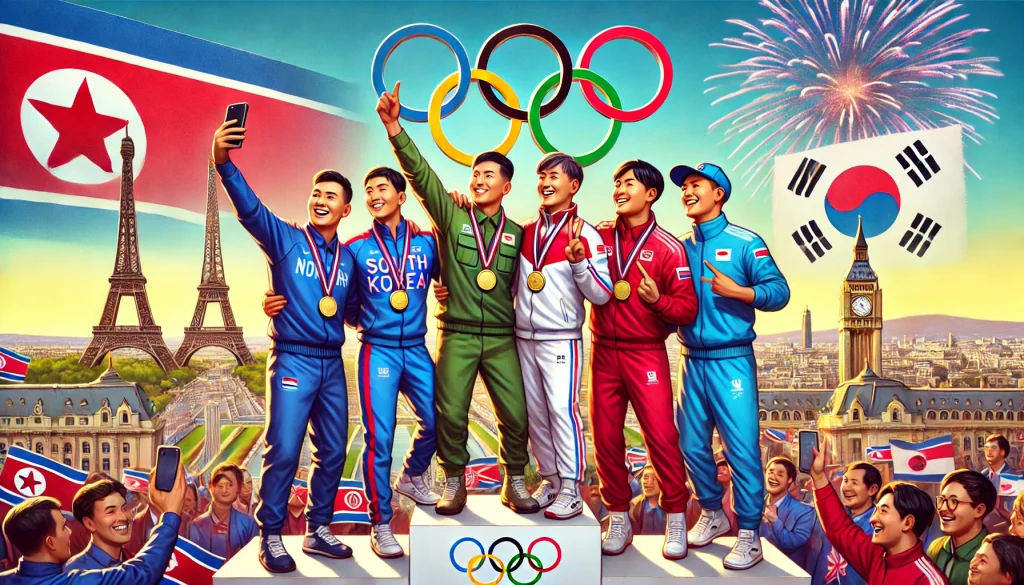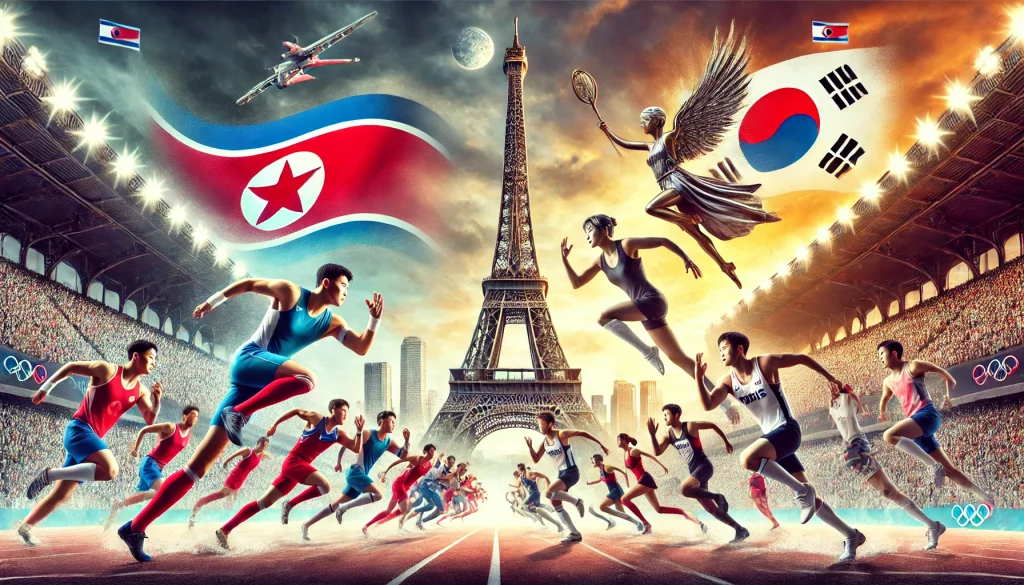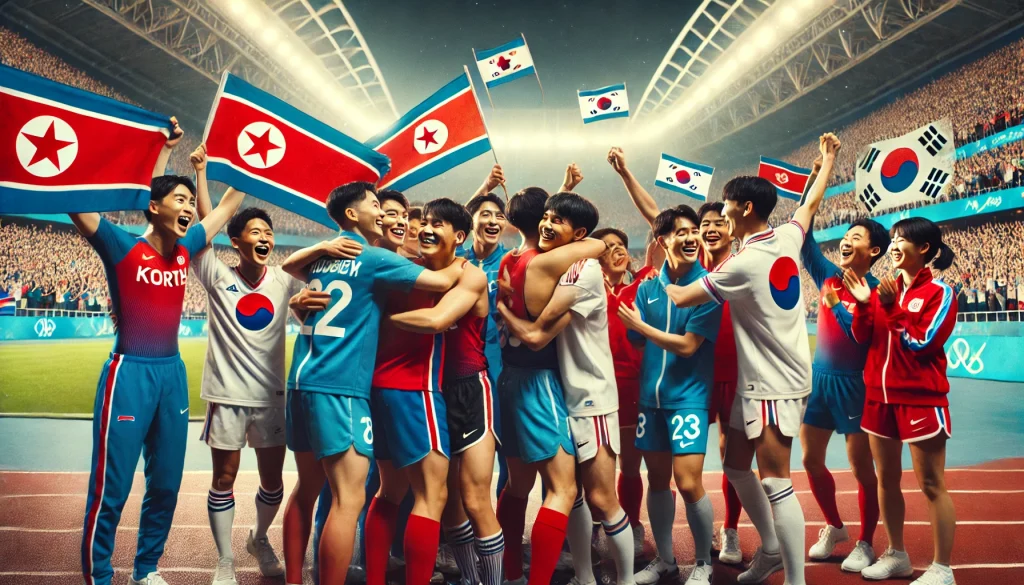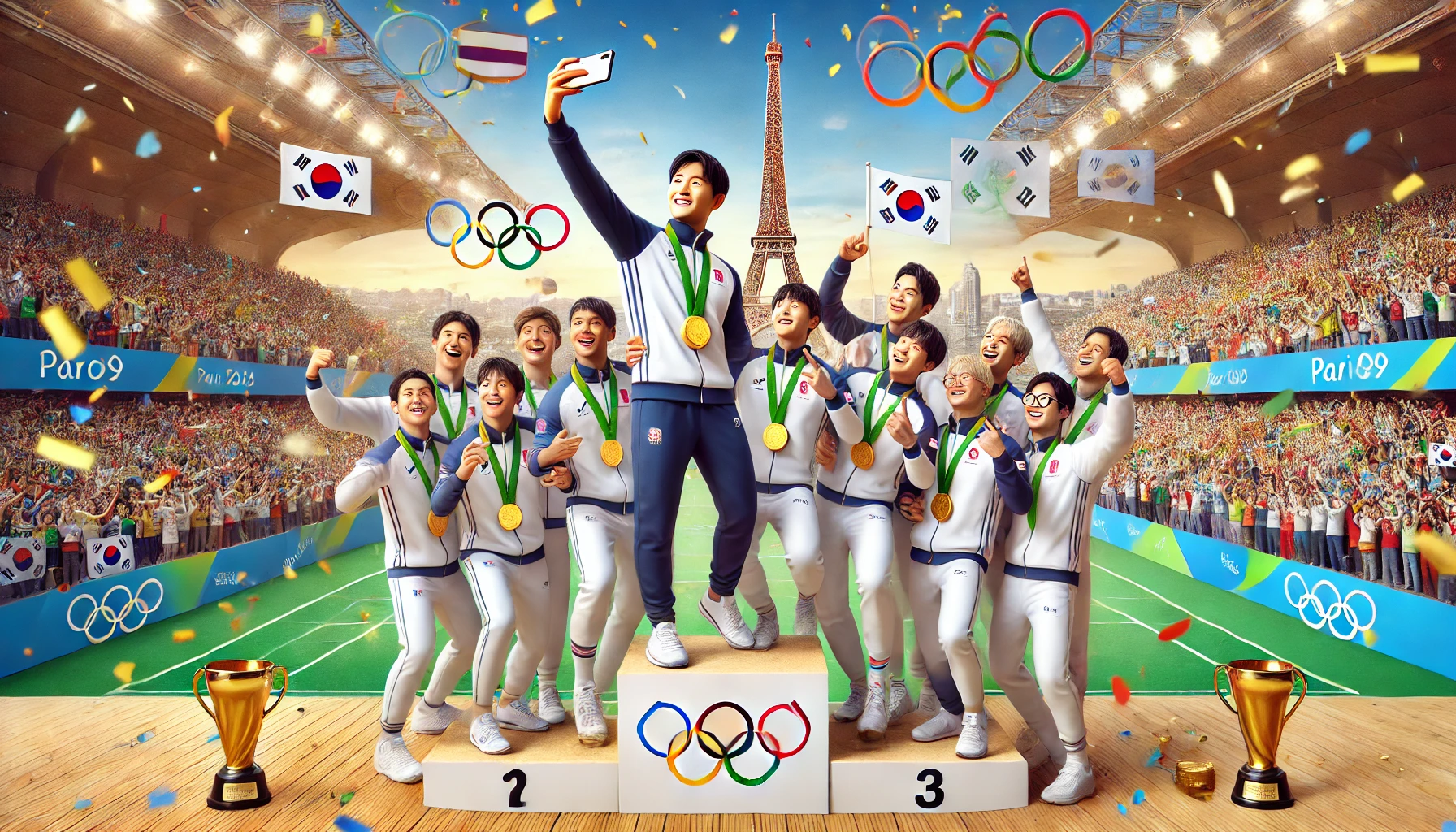Introduction

At the Paris 2024 Olympics, athletes from North and South Korea took a memorable selfie together on the podium. This heartwarming moment, celebrated globally, highlights the unifying power of sports. By transcending political and cultural divides, this act of camaraderie captured the hearts of millions and showcased the potential for peaceful interactions between the two nations.
What Happened
During the Paris 2024 Olympics, North and South Korean athletes shared a spontaneous podium selfie. This act of unity occurred during a mixed team event’s medal ceremony. Athletes from both countries smiled together, celebrating their achievements and demonstrating true sportsmanship. The image quickly went viral, symbolizing hope and solidarity amid longstanding tensions.
For more details, watch this video:
When and Where

This significant event took place at the Paris 2024 Olympics during the medal ceremony for a mixed team event. Held in the historic and vibrant city of Paris, the athletes seized the moment to celebrate unity and success on the world stage, making headlines and capturing public imagination.
Who is Involved
The selfie involved athletes from both North and South Korea. Although their names weren’t widely publicized, their act of unity gained international praise. This spontaneous gesture highlighted their shared humanity and the spirit of the Olympics, showing that sports can create inclusive and supportive environments even between politically divided nations.
Why It Matters

This moment is significant for several reasons. It underscores sports’ role in fostering understanding and goodwill between historically conflicting nations. The selfie has been hailed as a symbol of peace and unity, sparking discussions on sports’ power to bridge divides. Furthermore, it suggests potential positive interactions and collaborations between the two Koreas in the future.
Key Moments of Unity at the Olympics
| Year | Event | Nations Involved | Description |
|---|---|---|---|
| 2024 | Paris Olympics | North and South Korea | Athletes took a selfie together on the podium |
| 2018 | PyeongChang Winter Olympics | North and South Korea | Joint women’s ice hockey team |
| 2000 | Sydney Summer Olympics | North and South Korea | Joint march during the opening ceremony |
| 1991 | World Table Tennis Championships | North and South Korea | Unified Korea team competed together |
Conclusion
The podium selfie taken by North and South Korean athletes at the Paris 2024 Olympics is a testament to sports’ unifying power. This heartwarming moment has captured the world’s attention and serves as a hopeful sign for improved relations between the two countries. Celebrating these instances of unity reminds us of sports’ positive impact in fostering peace and understanding.
FAQ
What significance does the podium selfie hold for North and South Koreans?
The selfie taken by North and South Korean athletes at the Paris 2024 Olympics symbolizes unity and sports’ potential to bridge political divides. It has been widely praised as a moment of true sportsmanship and a hopeful sign for future relations between the two countries.
How did the public react to the podium selfie?
The public reaction was overwhelmingly positive. The selfie went viral on social media, with many celebrating the athletes’ display of unity. It was seen as a powerful image of peace and camaraderie in a world often divided by politics.
Have there been other instances of North and South Korean unity in sports?
Yes, there have been several instances. Notable examples include the joint march during the opening ceremony of the 2000 Sydney Summer Olympics and the formation of a unified women’s ice hockey team at the 2018 PyeongChang Winter Olympics.
References
- Deccan Herald. (2024). Olympics 2024: South and North Korea Athletes Take Selfie Together, Internet Calls It Beautiful Moment. Retrieved from https://www.deccanherald.com/world/olympics-2024-south-and-north-korea-athletes-take-selfie-together-internet-calls-it-beautiful-moment-3133949
- MSN News. (2024). Olympic Podium Selfie Unites North and South Korean Athletes. Retrieved from https://www.msn.com/en-gb/news/world/olympic-podium-selfie-unites-north-and-south-korean-athletes/ar-BB1r00hM?ocid=BingNewsVerp
- CNN. (2024). North and South Korea Selfie at Paris Olympics. Retrieved from https://edition.cnn.com/2024/07/31/sport/north-south-korea-selfie-paris-olympics-spt/index.html
- MSN News. (2024). True Sportsmanship: North and South Korean Athletes Celebrate Together with Podium Selfie at 2024 Paris Olympics. Retrieved from https://www.msn.com/en-in/entertainment/southcinema/true-sportsmanship-north-south-korean-athletes-celebrate-together-with-podium-selfie-at-2024-paris-olympics-watch/ar-BB1r0ghH?ocid=BingNewsVerp

